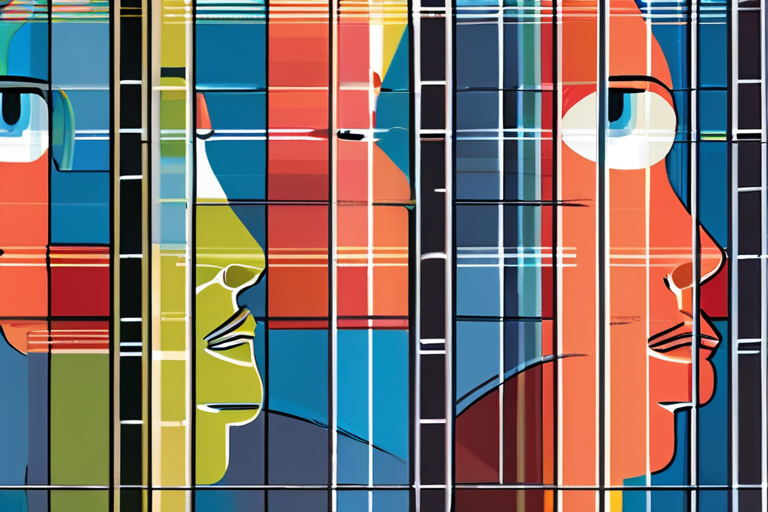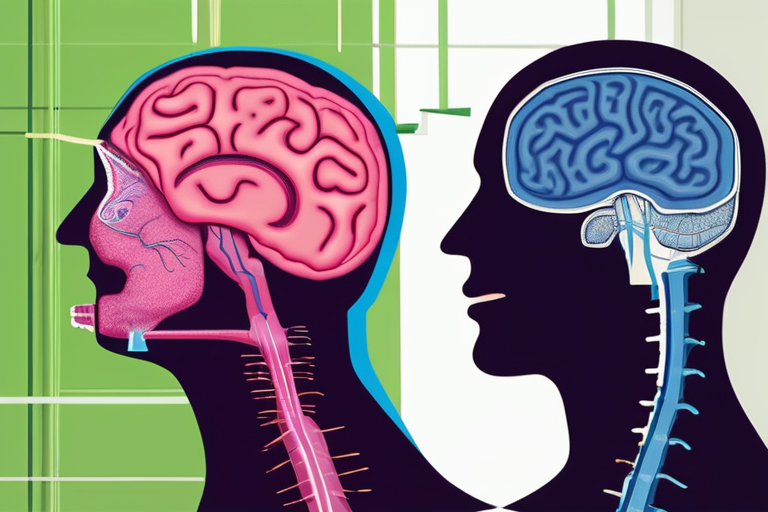The Complex Tapestry of Autism: Unraveling the Mysteries of a Multifaceted Condition
As I sat in the dimly lit room, surrounded by the gentle hum of computers and the soft murmur of scientists discussing their latest findings, I couldn't help but think about the countless families around the world who have been touched by autism. For them, the diagnosis is often a turning point – a moment of clarity that can bring both relief and uncertainty. But what if we told you that this diagnosis might not be as straightforward as it seems? A groundbreaking international study has shed new light on the complexities of autism, revealing that it may not be a single condition with one cause, but rather a multifaceted tapestry woven from diverse genetic profiles.
The research, published in the journal Nature, analyzed genetic data from over 45,000 autistic individuals across Europe and the United States. The findings are nothing short of revolutionary: those diagnosed as children typically have distinct genetic profiles compared to those diagnosed later in life. This means that autism is not a single entity, but rather a collection of conditions with different underlying biological and developmental characteristics.
Dr. Varun Warrier, senior author of the study from Cambridge's department of psychiatry, explained the significance of these findings: "The term 'autism' likely describes multiple conditions... For the first time, we have found that earlier and later diagnosed autism have different underlying biological and developmental profiles." He emphasized that this is not a simple matter of averages; each individual's experience with autism is unique, influenced by a complex interplay of genetic and environmental factors.
As I delved deeper into the study, I spoke to families from around the world who have been impacted by autism. For Maria, a mother from Spain, the diagnosis was a turning point in her life. Her son, Juan, was diagnosed with autism at the age of three, and since then, they've worked tirelessly to understand his needs and find ways to support him. "It's like trying to solve a puzzle," she said, her voice filled with emotion. "We're constantly learning, adapting, and finding new ways to help Juan thrive."
But what about those diagnosed later in life? For individuals like John, a 35-year-old from the United States, autism was not something he grew up with. He was diagnosed as an adult, after struggling for years to understand his own behaviors and challenges. "It's been a journey of self-discovery," he said, reflecting on the impact of his diagnosis. "I've learned to accept myself, flaws and all, and find ways to navigate the world in my own way."
The study's findings have significant implications for our understanding of autism and its causes. If we assume that autism is a single condition with one cause, we risk oversimplifying the complex interplay of genetic and environmental factors at play. As Dr. Warrier noted, "It is a gradient... There are also many other factors that contribute to age of diagnosis, so the moment you go from averages to anything that is applicable to an individual, it's false equivalency."
As we continue to unravel the mysteries of autism, it's essential to recognize the diversity of experiences and perspectives within this community. By acknowledging the complexities of autism, we can work towards a more inclusive and compassionate understanding – one that values each individual's unique journey.
The study's lead author, Dr. Varun Warrier, emphasized the importance of this research: "This is not just about autism; it's about how we approach complex conditions in general. By acknowledging the diversity within these conditions, we can develop more effective treatments and support systems for individuals and families."
As I left the room where the scientists were discussing their findings, I couldn't help but feel a sense of hope. The tapestry of autism is indeed complex, but by embracing its multifaceted nature, we can work towards a brighter future – one that values diversity, inclusivity, and compassion.
Sources:
The Guardian: "Autism diagnosis may be based on multiple conditions, study suggests"
Nature: "Genetic analysis reveals distinct profiles in early- and late-diagnosed autism"
Image: A photograph of a family with an autistic child, taken by a photographer from the United States.
*Based on reporting by Science.*



 Hoppi
Hoppi

 Hoppi
Hoppi

 Hoppi
Hoppi

 Hoppi
Hoppi

 Hoppi
Hoppi

 Hoppi
Hoppi











